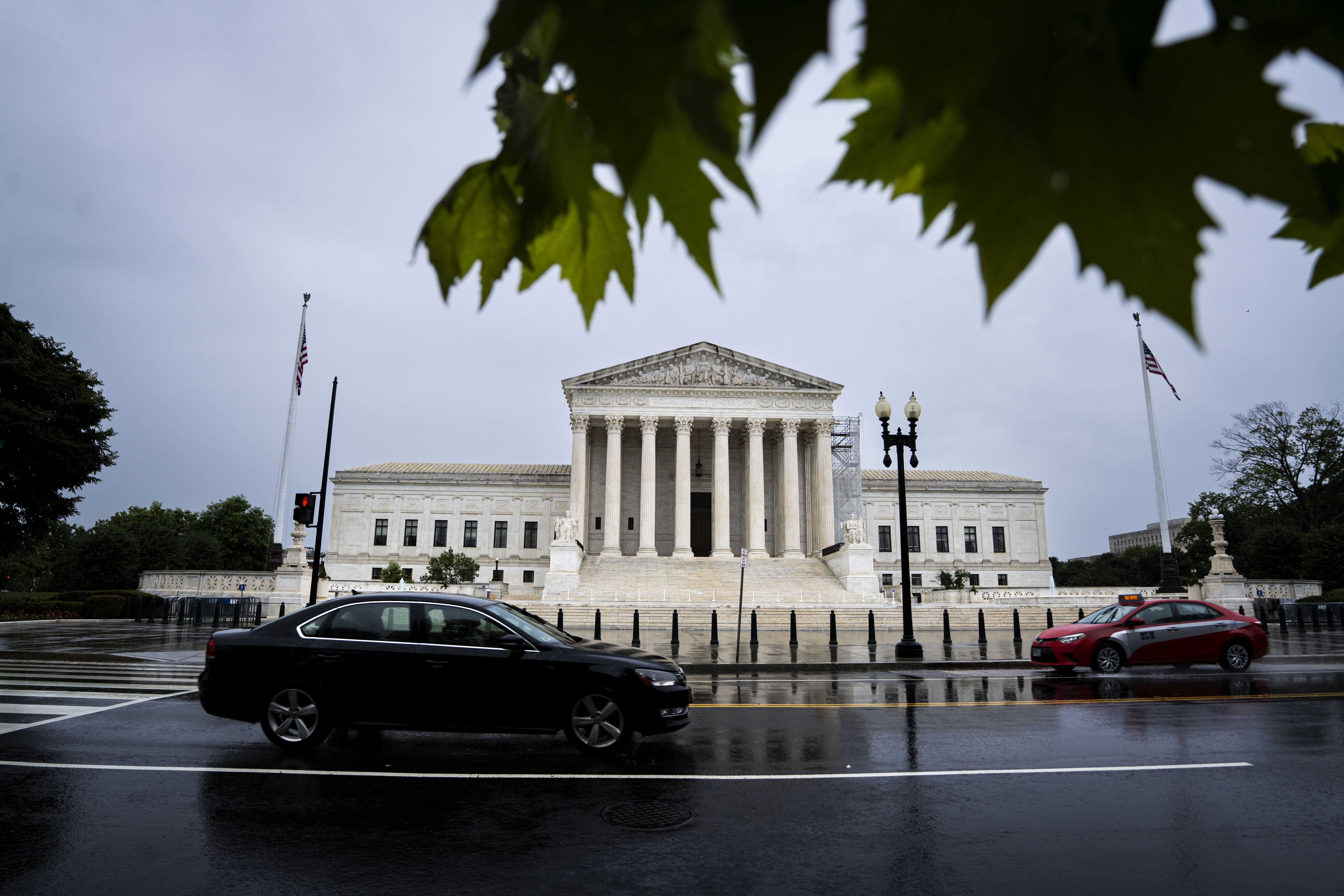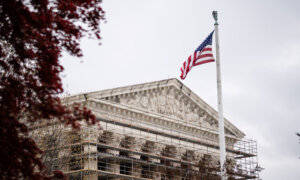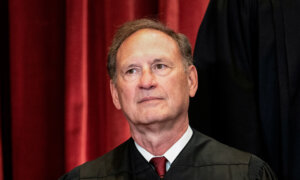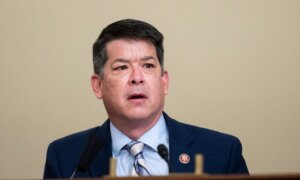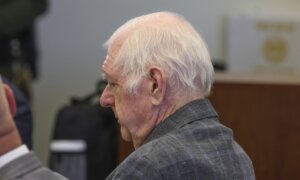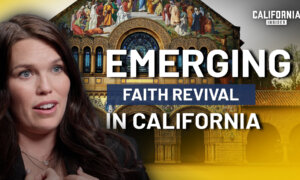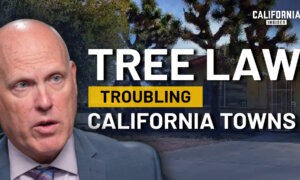The Supreme Court on June 28 upheld on a 6–3 vote a local ordinance banning public camping, which activists claimed unconstitutionally punished homeless people for being homeless.
The majority opinion in City of Grants Pass v. Johnson was written by Justice Neil Gorsuch.
Three justices: Sonia Sotomayor, Elena Kagan, and Ketanji Brown Jackson, dissented.
The Supreme Court held that the enforcement of generally applicable laws regulating camping on public property does not constitute “cruel and unusual punishment” prohibited by the Eighth Amendment.
Challengers had advanced the novel argument that the local law in Grants Pass, Oregon, violated the Eighth Amendment’s guarantee against cruel and unusual punishment.
The city asked for a lower court ruling barring it from enforcing its public camping ordinance to be lifted, saying that the court made mistakes when interpreting the law.
Grants Pass, population 39,000, is in southwest Oregon on the California border.
The ruling comes as cities across the nation grapple with the growing homelessness crisis. More than 580,000 people experienced homelessness in 2022, the U.S. Department of Housing and Urban Development has reported.
Previously, the U.S. Court of Appeals for the 9th Circuit held that Grants Pass was barred by the U.S. Constitution from enforcing criminal or civil penalties for camping on public lands. The court held that governments may not prosecute individuals for sleeping outdoors when no indoor space is available.
The 9th Circuit had affirmed the July 2020 ruling of U.S. Magistrate Judge Mark Clarke of the U.S. District Court in Oregon, who found that Grants Pass’ “policy and practice of punishing homelessness violated the Cruel and Unusual Punishment Clause of the Eighth Amendment.”
Judge Clarke held that Martin v. Boise, a 9th Circuit decision from 2019, was a controlling precedent in the case. That circuit court ruling said the Constitution “prohibits punishing people for engaging in unavoidable human acts, such as sleeping or resting outside when they have no access to shelter,” the judge wrote.
In Martin, the circuit court found that “‘so long as there is a greater number of homeless individuals in [a city] than the number of available beds [in shelters],’ a city cannot punish homeless individuals for ‘involuntarily sitting, lying, and sleeping in public.’”
To “criminalize indigent, homeless people for sleeping outdoors” would be to punish them based “on the false premise they had a choice in the matter.”
The Martin ruling was based in part on a Supreme Court ruling in Robinson v. California (1962), which held that states may not punish a person for a mere status or condition, such as drug addiction, when the defendant has not participated in any illegal conduct involving drugs in the state.
“Even one day in prison would be a cruel and unusual punishment for the ‘crime’ of having a common cold,” the late Justice Potter Stewart wrote.
Paul J. Larkin and Zack Smith of The Heritage Foundation had previously criticized the 9th Circuit’s decision to uphold the district court ruling as an example of “result-oriented jurisprudence at its worst, proof that an intellectually dishonest judge can reach any result he or she wants just by writing grammatically correct sentences and sprinkling in a few citations to, or quotations from, Supreme Court decisions.”

A homeless camp near Jibboom Street behind a motel in Sacramento, as seen on April 8, 2024, before it was swept by local authorities. (Travis Gillmore/The Epoch Times)
A ‘Complex’ Issue
In the majority opinion, Justice Gorsuch wrote that “homelessness is complex.”
“At bottom, the question this case presents is whether the Eighth Amendment grants federal judges primary responsibility for assessing those causes and devising those responses.
“It does not,” he added.
People may disagree over appropriate policy responses and experiment with one set of approaches only to later discover another set works better, or they may find some responses are more appropriate for some communities than others, he wrote.
“But in our democracy, that is their right,” Justice Gorsuch wrote, adding a handful of judges cannot hope to “match the collective wisdom the American people possess” in deciding how best to deal with homelessness.
The Eighth Amendment “does not authorize federal judges to wrest those rights and responsibilities from the American people and in their place dictate this Nation’s homelessness policy,” he wrote.
Besides, the public camping ordinances of Grants Pass do not criminalize the status of a person, a concern of Robinson v. California, and the laws apply to everyone, regardless of status, he wrote.
The Supreme Court reversed the decision of the 9th Circuit and remanded the case to that court “for further proceedings consistent with this opinion.”
Justice Clarence Thomas filed a concurring opinion.
The majority correctly holds that the Eighth Amendment “focuses on the question [of] what method or kind of punishment a government may impose after a criminal conviction,” he wrote.
Both the Supreme Court and lower courts “should be wary of expanding” the Cruel and Unusual Punishments Clause “beyond its text and original meaning.”
Justice Thomas added that Robinson v. California was “wrongly decided.”
Justice Sotomayor filed a dissenting opinion, which was joined by Justices Kagan and Jackson.
“Sleep is a biological necessity, not a crime,” Justice Sotomayor wrote. “For some people, sleeping outside is their only option.”
Grants Pass jails and fines people for “sleeping anywhere in public at any time, including in their cars, if they use as little as a blanket to keep warm or a rolled-up shirt as a pillow.”
With those who have no access to shelter, “that punishes them for being homeless,” which is “unconscionable and unconstitutional. Punishing people for their status is ‘cruel and unusual’ under the Eighth Amendment.”
